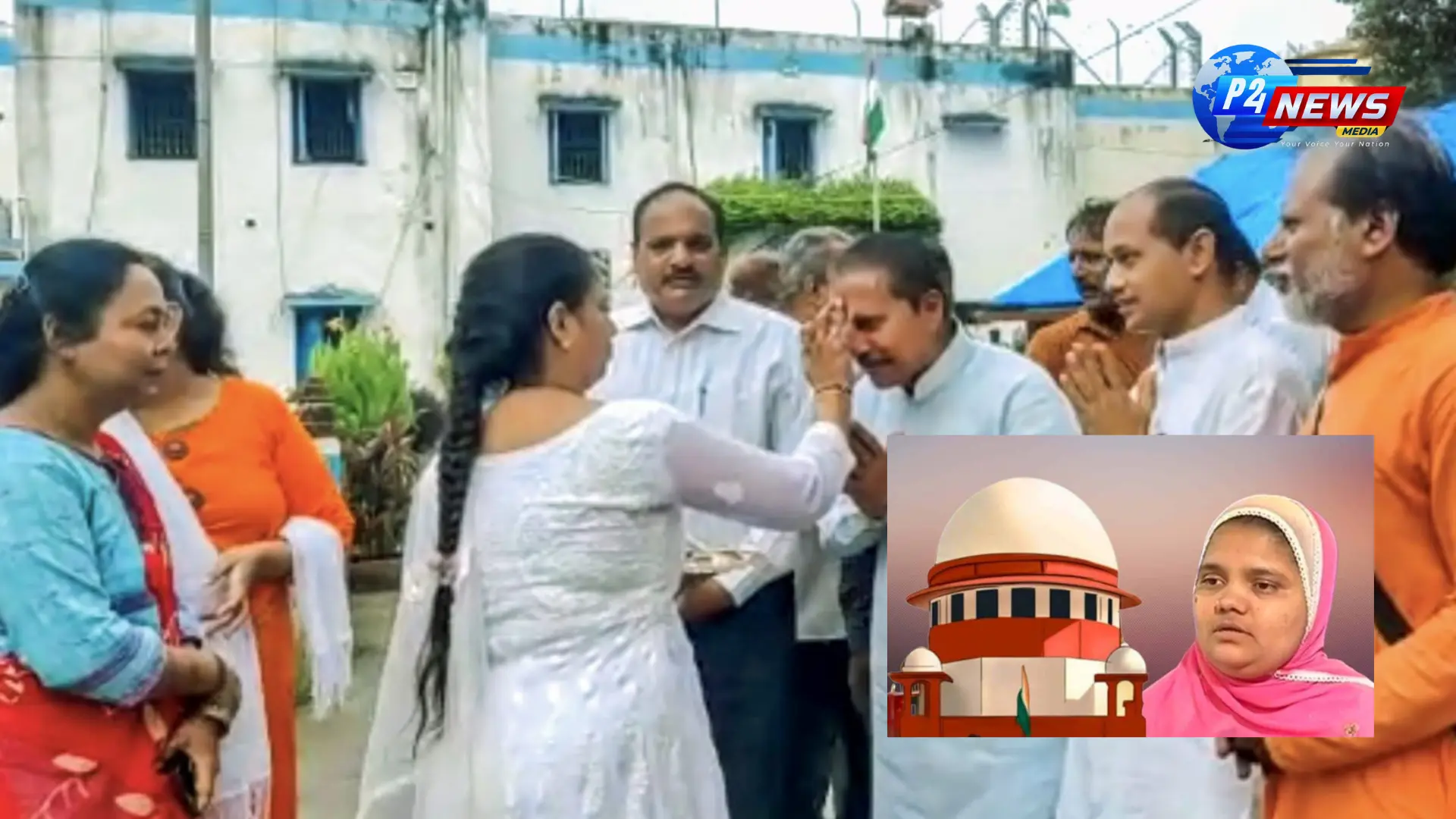In a significant setback to the Gujarat government, the Supreme Court on Thursday denied the state’s request to remove comments from its earlier ruling regarding the release of convicts in the Bilkis Bano case.
In a significant setback to the Gujarat government, the Supreme Court on Thursday denied the state’s request to remove comments from its earlier ruling regarding the release of convicts in the Bilkis Bano case.
In a significant setback to the Gujarat government, the Supreme Court on Thursday denied the state’s request to remove comments from its earlier ruling regarding the release of convicts in the Bilkis Bano case. The case, which had drawn considerable public attention, centered around the premature release of 11 men who were convicted of heinous crimes during the 2002 Gujarat riots, including the rape of Bilkis Bano and the murder of her family members.
The Gujarat government had sought the removal of certain remarks made by the court, particularly the comment that it had "acted in collusion and colluded with the convicts." This comment was seen as damaging to the state’s credibility, and the government argued that it was not only inappropriate but also contradicted the record of the case. However, the Supreme Court was not convinced by the state’s argument, ultimately deciding to keep the remarks intact, reinforcing its previous stance on the matter.
The state’s petition argued that the court’s observations were biased against it and did not accurately reflect the case's circumstances. The government was particularly concerned about the impression that the court's comment might create in the public eye. Despite this, the bench of Justice BV Nagarathna and Justice Ujjal Bhuyan stood firm in their decision, maintaining that there was no error in their previous ruling and that the state’s petition lacked merit to justify any reconsideration.
In delivering their judgment, the bench explained, "Having carefully gone through the Review Petitions, the order under challenge, and the papers annexed therewith, we are satisfied that there is no error apparent on the face of the record or any merit in the Review Petitions, warranting reconsideration of the order impugned..." This statement made it clear that the court had thoroughly reviewed all materials before arriving at its decision to dismiss the petition.
This recent ruling follows the Supreme Court’s decision in July to reject interim bail petitions filed by two of the convicts, Radheyshyam Bhagwandas and Rajubhai Babulal. The convicts had claimed that two different benches of the top court had taken conflicting views on the state’s policy regarding early release, creating an "anomalous" situation. However, the court dismissed this argument, firmly rejecting their plea for interim bail.
Earlier, in January, the court had ruled that the 11 men who were prematurely released by the Gujarat government due to "good behaviour" must return to jail. This landmark decision was met with widespread public support, as many had been outraged by the state's decision to release the convicts. The court declared that the Gujarat government did not have the authority to release the convicts and that the release order was invalid from the start.
In its judgment, the court criticized the state, stating that the exemption order lacked competence and that it had been passed "without application of mind." The court also underscored that convicts could only be released by the state in which they were originally tried, which, in this case, was Maharashtra. The Gujarat government’s actions were described as an "instance of usurpation of power and abuse of power."
The court’s ruling did not stop there. It also took a hard look at its own May 2022 judgment, which had allowed the convicts to appeal for early remission to the Gujarat government. The judges pointed out that the convicts had obtained this order "through fraudulent means" and that the Gujarat government should have filed a review of the 2022 ruling instead of granting the convicts release.
The release of the convicts was based on a now-obsolete 1992 remission policy, which had since been replaced by a 2014 law. This newer law prohibits the release of convicts in cases involving capital offences, yet the state still used the outdated policy as the basis for releasing the 11 men. This discrepancy further fueled public outrage, as many saw it as a serious flaw in the state’s legal process.
When the convicts were released, they were welcomed back with garlands and sweets, a move that ignited even more public fury. Images of them on stage with a BJP MP and an MLA circulated widely, further deepening the controversy. One of the convicts, Radheshyam Shah, even resumed practising law after his release. During an 11-day hearing last year, these details were presented to the Supreme Court, highlighting the contentious nature of their release.
Bilkis Bano was just 21 years old and five months pregnant when she endured unimaginable trauma during the communal riots following the fire in the Sabarmati Express, which killed 59 kar sevaks. While fleeing for safety, she was gang-raped, and her three-year-old daughter, along with six other family members, was brutally murdered. This case, emblematic of the horrors of the Gujarat riots, has remained a focal point of justice and accountability in India’s legal and social landscape.
Like
Dislike
Love
Angry
Sad
Funny
Pray
'Trump Tracker: Tulsi Gabbard's Surprising Appointment as US Intelligence Chief
November 14, 20249th Ayurveda Day in Melbourne: A Celebration of Ayurvedic Innovations and Global Health Impact
November 10, 2024🍪 We Value Your Privacy and Experience Hi there! We use cookies to enhance your browsing experience, provide personalized content, and analyze site traffic. By continuing to use our site, you consent to our use of cookies.







Comments 0